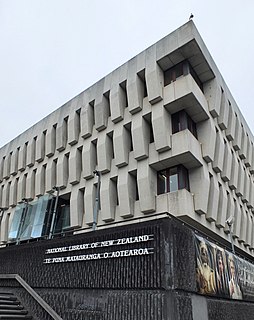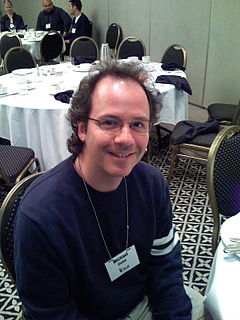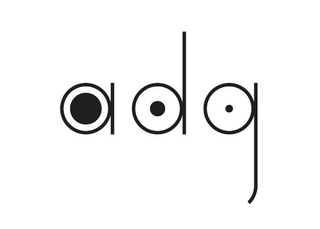Related Research Articles
Fair use is a doctrine in United States law that permits limited use of copyrighted material without having to first acquire permission from the copyright holder. Fair use is one of the limitations to copyright intended to balance the interests of copyright holders with the public interest in the wider distribution and use of creative works by allowing as a defense to copyright infringement claims certain limited uses that might otherwise be considered infringement. Unlike "fair dealing" rights that exist in most countries with a British legal history, the fair use right is a general exception that applies to all different kinds of uses with all types of works and turns on a flexible proportionality test that examines the purpose of the use, the amount used, and the impact on the market of the original work.

The National Library of New Zealand is New Zealand's legal deposit library charged with the obligation to "enrich the cultural and economic life of New Zealand and its interchanges with other nations". Under the Act, the library's duties include collection, preserving and protecting the collections of the National Library, significant history documents, and collaborating with other libraries in New Zealand and abroad.
Legal deposit is a legal requirement that a person or group submit copies of their publications to a repository, usually a library. The number of copies required varies from country to country. Typically, the national library is the primary repository of these copies. In some countries there is also a legal deposit requirement placed on the government, and it is required to send copies of documents to publicly accessible libraries.

Freedom of information is freedom of a person or people to publish and consume information. Access to information is the ability for an individual to seek, receive and impart information effectively. This sometimes includes "scientific, indigenous, and traditional knowledge; freedom of information, building of open knowledge resources, including open Internet and open standards, and open access and availability of data; preservation of digital heritage; respect for cultural and linguistic diversity, such as fostering access to local content in accessible languages; quality education for all, including lifelong and e-learning; diffusion of new media and information literacy and skills, and social inclusion online, including addressing inequalities based on skills, education, gender, age, race, ethnicity, and accessibility by those with disabilities; and the development of connectivity and affordable ICTs, including mobile, the Internet, and broadband infrastructures".

The Australian Human Rights Commission is the national human rights institution of Australia, established in 1986 as the Human Rights and Equal Opportunity Commission (HREOC) and renamed in 2008. It is a statutory body funded by, but operating independently of, the Australian Government. It is responsible for investigating alleged infringements of Australia's anti-discrimination legislation in relation to federal agencies.
An orphan work is a copyright-protected work for which rightsholders are positively indeterminate or uncontactable. Sometimes the names of the originators or rightsholders are known, yet it is impossible to contact them because additional details cannot be found. A work can become orphaned through rightsholders being unaware of their holding, or by their demise and establishing inheritance has proved impracticable. In other cases, comprehensively diligent research fails to determine any authors, creators or originators for a work. Since 1989, the amount of orphan works in the United States has increased dramatically since some works are published anonymously, assignments of rights are not required to be disclosed publicly, and registration is optional and, thus, many works' statuses with respect to who holds which rights remain unknown to the public even when those rights are being actively exploited by authors or other rightsholders.

Michael Allen Geist is a Canadian academic, the Canada Research Chair in Internet and E-Commerce Law at the University of Ottawa and a member of the Centre for Law, Technology and Society. Geist was educated at the University of Western Ontario, Osgoode Hall Law School, where he received his Bachelor of Laws, Cambridge University, where he received a Master of Laws, and Columbia Law School, where he received a Master of Laws and Doctor of Law degree. He has been a visiting professor at universities around the world including the University of Haifa, Hong Kong University, and Tel Aviv University. He is also a senior fellow at the Centre for International Governance Innovation.
The International Federation of Library Associations and Institutions (IFLA) is the leading international body representing the interests of people who rely on libraries and information professionals. An independent, non-governmental, not-for-profit organization, IFLA was founded in Scotland in 1927 and maintains headquarters at the National Library of the Netherlands in The Hague. IFLA sponsors the annual IFLA World Library and Information Congress, promoting universal and equitable access to information, ideas, and works of imagination for social, educational, cultural, democratic, and economic empowerment. IFLA also produces several publications, including IFLA Journal.

Jisc is a United Kingdom not-for-profit company that provides network and IT services and digital resources in support of higher education institutions and research.
The National Digital Information Infrastructure and Preservation Program (NDIIPP) of the United States was an archival program led by the Library of Congress to archive and provide access to digital resources. The program convened several working groups, administered grant projects, and disseminated information about digital preservation issues. The U.S. Congress established the program in 2000, and official activity specific to NDIIPP itself wound down between 2016 and 2018. The Library was chosen because of its role as one of the leading providers of high-quality content on the Internet. The Library of Congress has formed a national network of partners dedicated to preserving specific types of digital content that is at risk of loss.

The Australian Library and Information Association (ALIA), formerly the Australian Institute of Librarians and Library Association of Australia, is the peak professional organisation for the Australian library and information services sector. Founded in 1937, its headquarters are in Canberra.
Crown copyright is a type of copyright protection. It subsists in works of the governments of some Commonwealth realms and provides special copyright rules for the Crown, i.e. government departments and (generally) state entities. Each single Commonwealth realm has its own distinct Crown copyright regulations. There are therefore no common regulations that apply to all or a number of those countries. There are some considerations being made in Canada, UK, Australia and New Zealand regarding the "reuse of Crown-copyrighted material, through new licences".
A digital library, also called an online library, an internet library, a digital repository, or a digital collection is an online database of digital objects that can include text, still images, audio, video, digital documents, or other digital media formats or a library accessible through the internet. Objects can consist of digitized content like print or photographs, as well as originally produced digital content like word processor files or social media posts. In addition to storing content, digital libraries provide means for organizing, searching, and retrieving the content contained in the collection. Digital libraries can vary immensely in size and scope, and can be maintained by individuals or organizations. The digital content may be stored locally, or accessed remotely via computer networks. These information retrieval systems are able to exchange information with each other through interoperability and sustainability.
The copyright law of Australia defines the legally enforceable rights of creators of creative and artistic works under Australian law. The scope of copyright in Australia is defined in the Copyright Act 1968, which applies the national law throughout Australia. Designs may be covered by the Copyright Act as well as by the Design Act. Since 2007, performers have moral rights in recordings of their work.

The Australian Digital Alliance (ADA) is an Australian non-profit coalition of public and private sector interests, formed to promote balanced copyright law by providing a voice for the public interest perspective in debates about copyright change and reform. The ADA engages with government through submissions, lobbying, and media activities.
National and State Libraries Australia (NSLA), formerly National and State Libraries Australasia, is the peak body that represents the national, state and territory libraries of Australia. The libraries collaborate on and support working groups addressing issues including: copyright issues, archival collections, collection development, marketing, collecting and preserving digital content, collections and services focusing on Indigenous Australians, and other issues relating to the collection, storage and dissemination of the various types of resources held by member institutions. It also compiles annual statistics on public library activities and usage throughout Australia, and publishes statistics on the services of its own collaborating libraries. Precursors to the organisation include the State Librarians Council, the State Libraries Council and Council of Australian State Libraries (CASL).
The NIH Public Access Policy is an open access mandate, drafted in 2004 and mandated in 2008, requiring that research papers describing research funded by the National Institutes of Health must be available to the public free through PubMed Central within 12 months of publication. PubMed Central is the self-archiving repository in which authors or their publishers deposit their publications. Copyright is retained by the usual holders, but authors may submit papers with one of the Creative Commons licenses.

The Australian Directors' Guild (ADG) is an industry guild representing the interests of film, television, commercials and digital media directors, including documentary makers and animators, throughout Australia. With its headquarters in Sydney, the ADG has branches in New South Wales, Queensland, South Australia, Victoria and Western Australia. As of 2022 the president of ADG is Rowan Woods.
The history of fair-use proposals in Australia is a series of Australian government enquiries into the introduction of a "flexible and open" fair use system into Australian copyright law. Between 1998 and 2016, eight enquiries examined, and in most cases recommended, the introduction of fair use in place of the current "fair dealing" system which allows copyrighted material to be used only if it meets one of four specific purposes as set out in the Act.

The Canadian Federation of Library Associations / Fédération canadienne des associations de bibliothèques (CFLA-FCAB) is a non-profit federation of Canada’s library associations. It was incorporated on 16 May 2016 and replaced the Canadian Library Association (CLA).
References
- ↑ Flexible dealing and cultural institutions : statement of principles regarding the use of section 200AB of the Copyright Act (1968): an industry standard and user guide for the cultural sector, Copyright in Cultural Institutions, 2010, retrieved 27 September 2018
- ↑ Dawes, Matt (July 2010), "Copyright and Libraries: The ALCC", Incite, 31 (7): 14, ISSN 0158-0876
- ↑ Copyright and the digital economy submission by the Australian Digital Alliance and Australian Libraries Copyright Committee to the Australian Law Reform Commission, Australian Libraries Copyright Commission, 2012, retrieved 27 September 2018
- ↑ Australian Digital AllianceAustralian Libraries' Copyright Committee (7 October 2005), High Court acknowledges importance of fair copyright and broader public interest , retrieved 27 September 2018
- ↑ Who we are Australian Libraries Copyright Committee
- ↑ Simes, Laura (December 2007), "AL C - Australian Libraries Copyright Committee", Incite, 28 (12): 31, 33, ISSN 0158-0876
- ↑ Smith, Nick, 1971-; Australian Council of Libraries and Information Services; Australian Libraries Copyright Committee (1994), Copyright bulletin, Australian Council of Libraries and Information Services, retrieved 27 September 2018
{{citation}}: CS1 maint: multiple names: authors list (link) - ↑ Simes, Laura; Simes, Laura; National Library of Australia (issuing body.); Australian Digital Alliance (issuing body.); Australian Libraries Copyright Committee (issuing body.); Simes, Laura (2008), A user's guide to the flexible dealing provision for libraries, educational institutions and cultural institutions : section 200AB of the copyright act 1968 (Cth), Australian Libraries Copyright Committee and the Australian Digital Alliance with the assistance of the National Library of Australia, retrieved 27 September 2018
- ↑ Copyright Amendment (Disability Access and Other Measures) Act 2017 Federal Register of Legislation
- ↑ Contact us Australian Libraries Copyright Committee